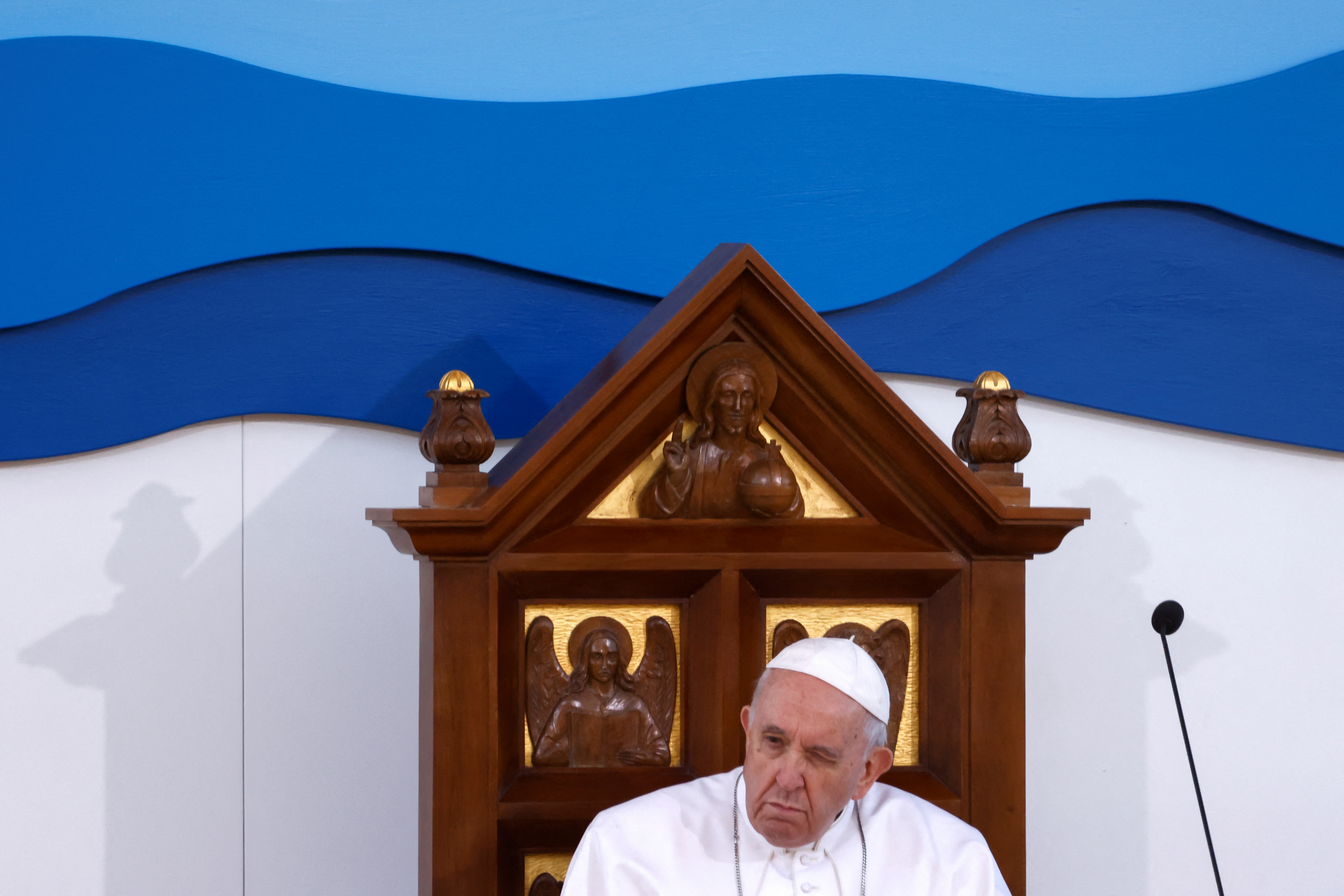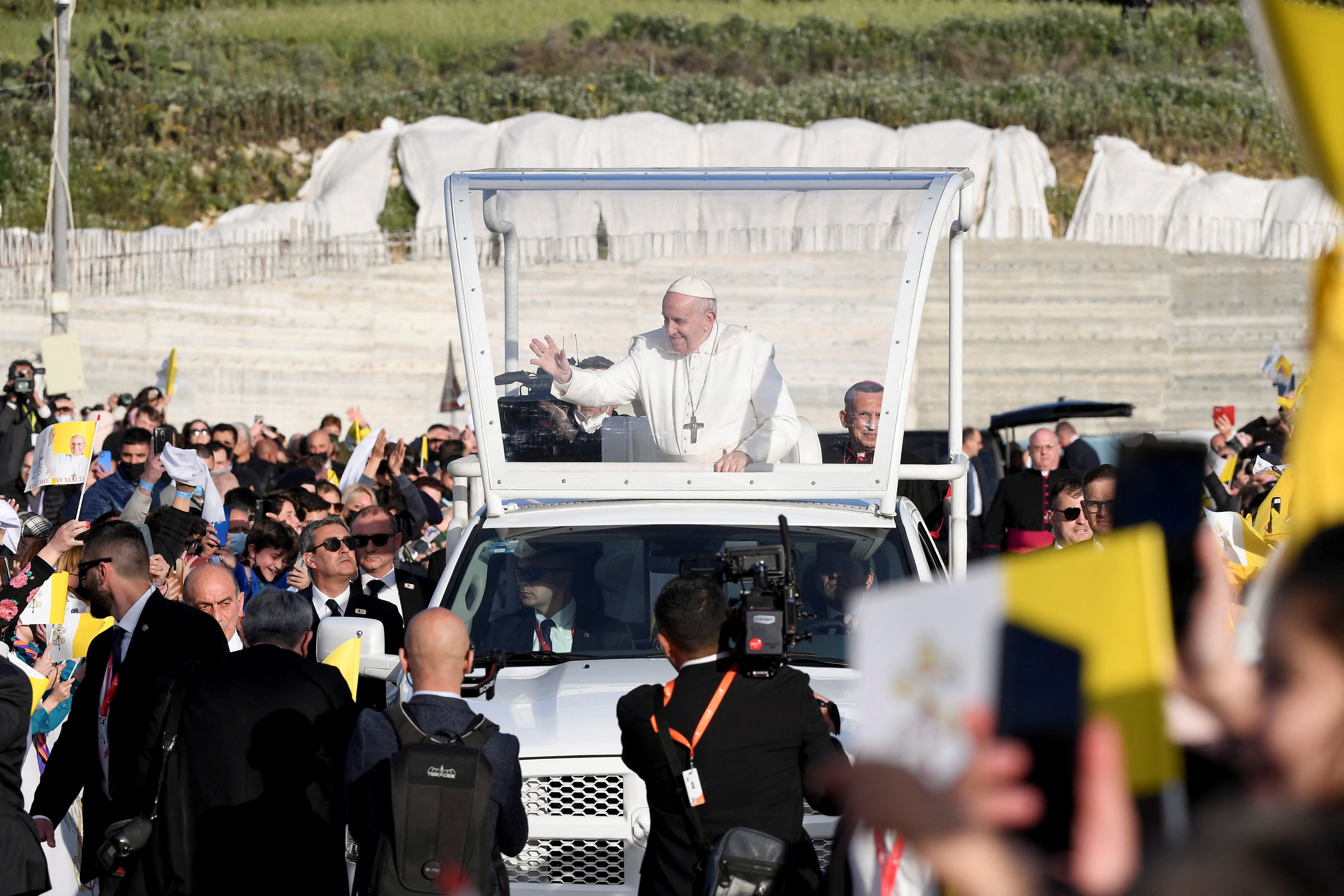
Pope Francis condemned Saturday in Malta the Russian invasion of Ukraine, where he plans to go at the invitation of Ukrainian President Volodymir Zelensky, and called for a “shared” response to the growing migration emergency.
In a speech at the presidential palace in Valletta, at the beginning of a two-day visit to this Mediterranean island, the Supreme Pontiff lamented the “glacial wind of war” coming from “Eastern Europe”.
“Some powerful, sadly locked in the anachronistic claims of nationalist interests, provokes and fosters conflicts,” he added in an unequivocal allusion to Russian President Vladimir Putin, albeit without naming him.
Francis also denounced “the seductions of autocracy” and “new imperialisms”, which bring the risk of “extended cold war that can stifle the lives of peoples and entire generations.”
“We had thought that invasions from other countries, savage street fighting and atomic threats were grim memories of a distant past,” Francis told Maltese officials of the Mediterranean island nation at the start of a weekend visit.

To date, it has avoided referring to Russia or Putin by name, in keeping with the Vatican tradition of not calling aggressors to keep dialogue options open. But Saturday's criticism of the powerful figure responsible for the war marked a new level of indignation for the pope.
Asked by the press about a possible trip to Ukraine, the holy father replied: “Yes, it's on the table.”
The 85-year-old Argentine pontiff was invited by Zelensky to play the role of mediator in negotiations between Ukraine and Russia, and to visit his country invaded by Russian troops since the end of February.
He was also invited by the mayor of Kiev, Vitali Klitschko, to “show his compassion” with the Ukrainian people
Faced with the conflict in Ukraine, which has led more than 4.1 million of its inhabitants to flee the country, the pope called for “broad and shared responses”.
“Only some countries cannot bear the whole problem, while others remain indifferent,” he told Maltese President George Vella and the diplomatic corps.
In addition to the reference to Ukraine, it was a criticism of the migration policy of the European Union (EU), including Malta, accused of closing its ports to the Oenegés who help migrants trying to reach Europe by crossing the Mediterranean.

Corruption
On Saturday afternoon, the Pope traveled by boat to Gozo (north), one of Malta's three inhabited islands, where he will preside over 2,000 people over a prayer at the Ta'Pinu National Shrine.
Before his departure, cannons were fired from the fortress and the bells of the churches of the capital rang.
Francis' visit to Malta follows those of his predecessors Benedict XVI in 2010 and John Paul II in 1990 and 2001.
The country's history has been steeped in Catholicism since the time of St. Paul, who is believed to have had a naval accident in Malta on the way to Rome.
About 85% of Malta's 516,000 inhabitants declare themselves Catholics, but although Catholicism is enshrined in the Constitution, its presence has suffered a sharp decline in recent years.
In his speech at the presidential palace, the pope opposed the virtues of “honesty, justice, a sense of duty and transparency” to “inequality and corruption” that affect Malta's reputation.
Indeed, Malta guarantees part of its economic prosperity in the sectors of online gambling, “offshore” companies and the famous “golden passports” that offer residence or nationality to wealthy investors whose fortunes sometimes have doubtful origins.
The 2017 murder of journalist Daphne Caruana Galizia, which shocked the country and the world, reignited accusations of laxism surrounding these modern plagues.
(With information from AFP and AP)
KEEP READING:
Últimas Noticias
Debanhi Escobar: they secured the motel where she was found lifeless in a cistern
Members of the Specialized Prosecutor's Office in Nuevo León secured the Nueva Castilla Motel as part of the investigations into the case

The oldest person in the world died at the age of 119
Kane Tanaka lived in Japan. She was born six months earlier than George Orwell, the same year that the Wright brothers first flew, and Marie Curie became the first woman to win a Nobel Prize

Macabre find in CDMX: they left a body bagged and tied in a taxi
The body was left in the back seats of the car. It was covered with black bags and tied with industrial tape
The eagles of America will face Manchester City in a duel of legends. Here are the details
The top Mexican football champion will play a match with Pep Guardiola's squad in the Lone Star Cup

Why is it good to bring dogs out to know the world when they are puppies
A so-called protection against the spread of diseases threatens the integral development of dogs




